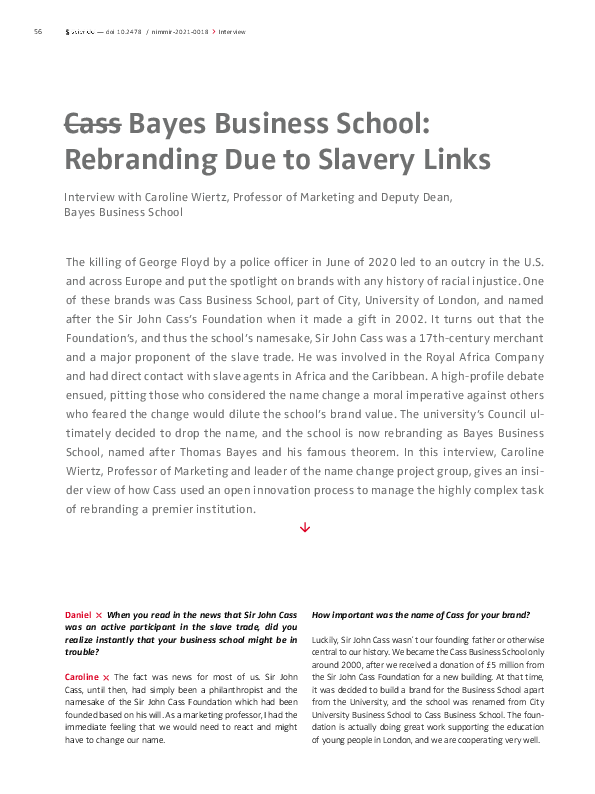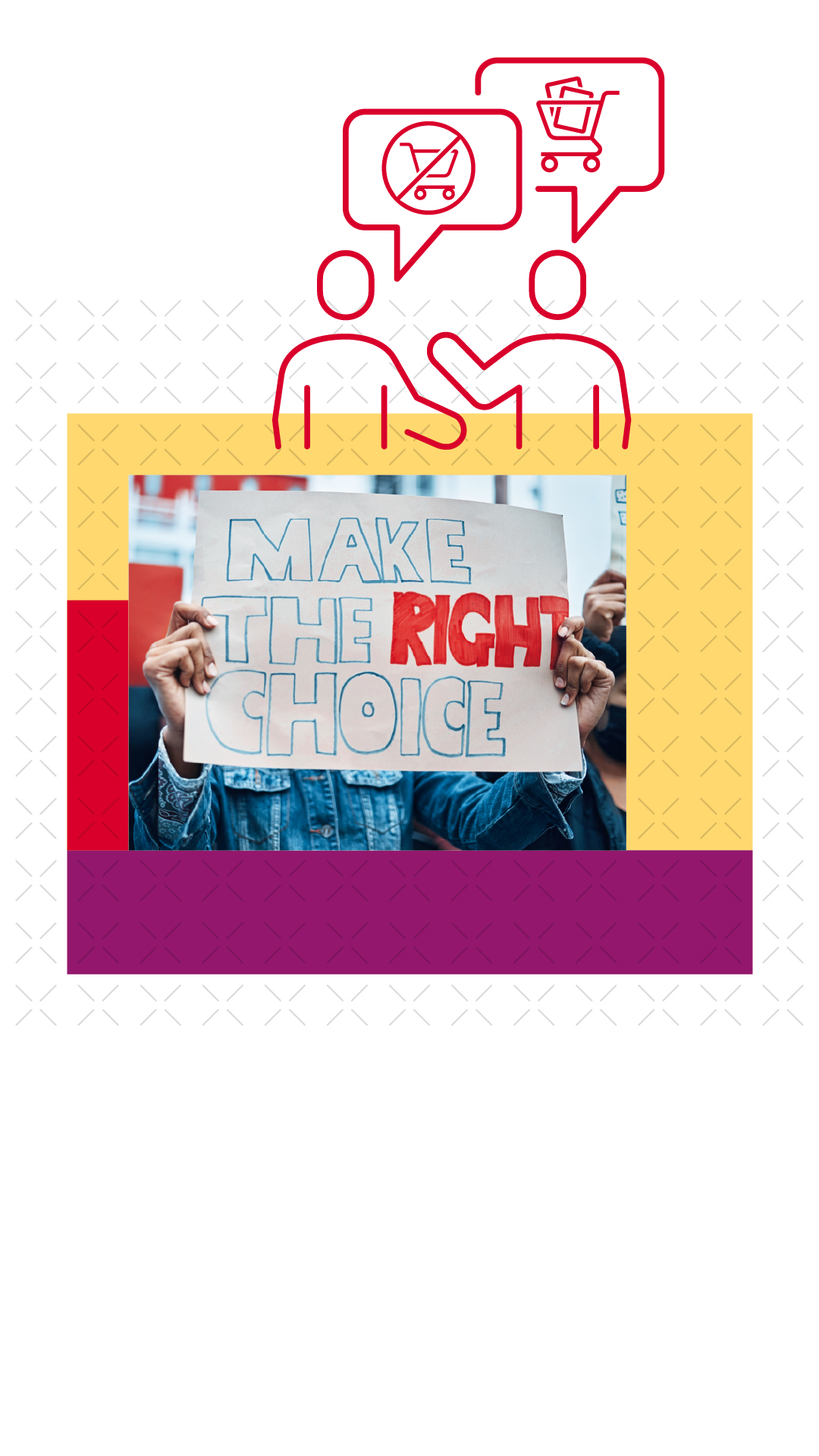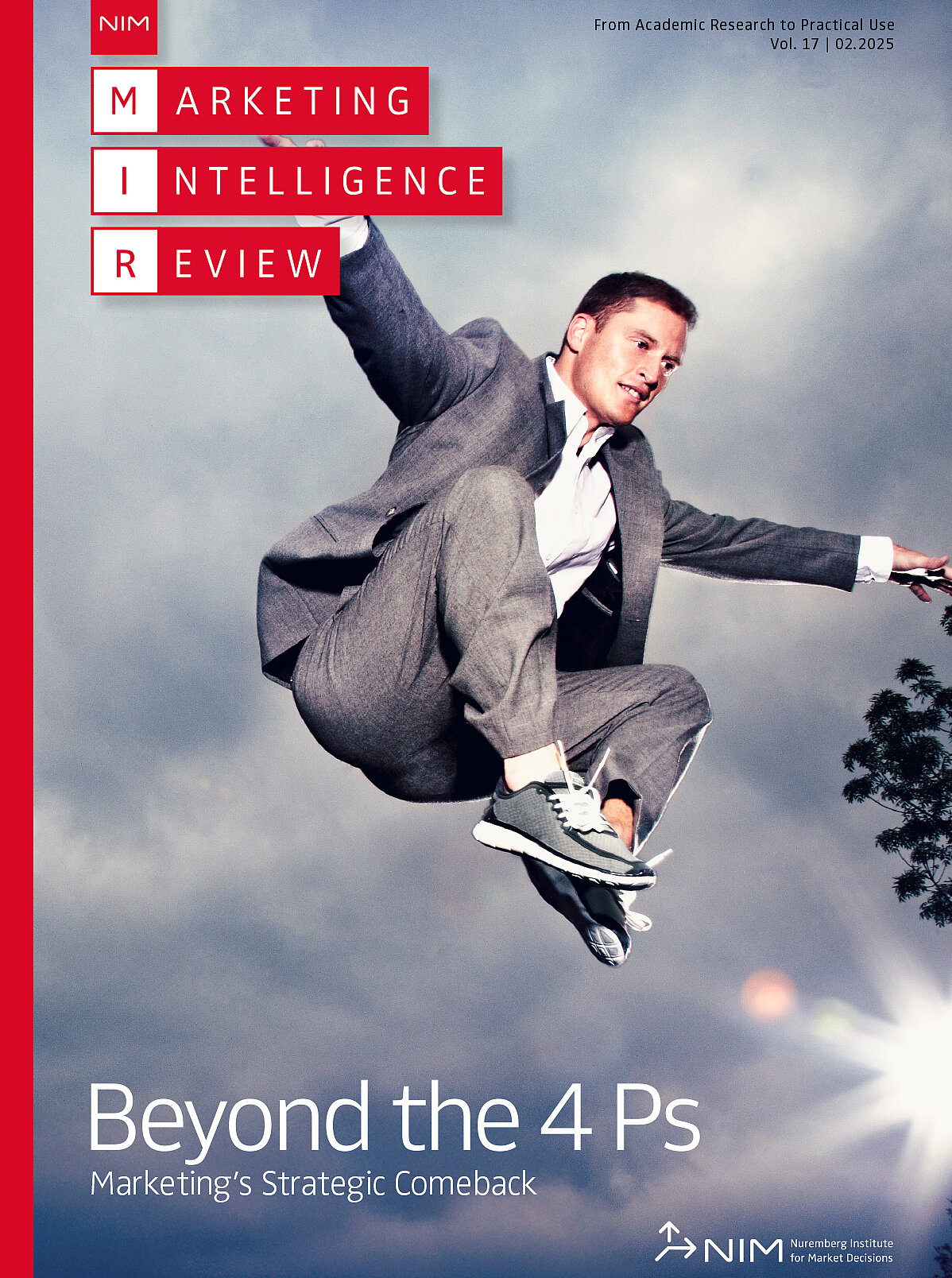(Cass) Bayes Business School: Rebranding Due to Slavery Links
Keywords: Rebranding, Namensänderung, Open Innovation, Authentizität
Abstract
The killing of George Floyd by a police officer in June of 2020 put the spotlight on brands with any history of racial injustice. One of these brands was Cass Business School, part of City, University of London. It turned out that the school’s namesake, Sir John Cass, was a 17th -century merchant and a major proponent of the slave trade. A high-profile debate ensued, pitting those who considered the name change a moral imperative against others who feared the change would dilute the school’s brand value. The university’s Council ultimately decided to drop the name and the school is now rebranding as Bayes Business School. In this interview, Caroline Wiertz, Professor of Marketing and leader of the name change project group, gives an insider view of how Cass used an open innovation process to manage the highly complex task of rebranding a premier institution.










